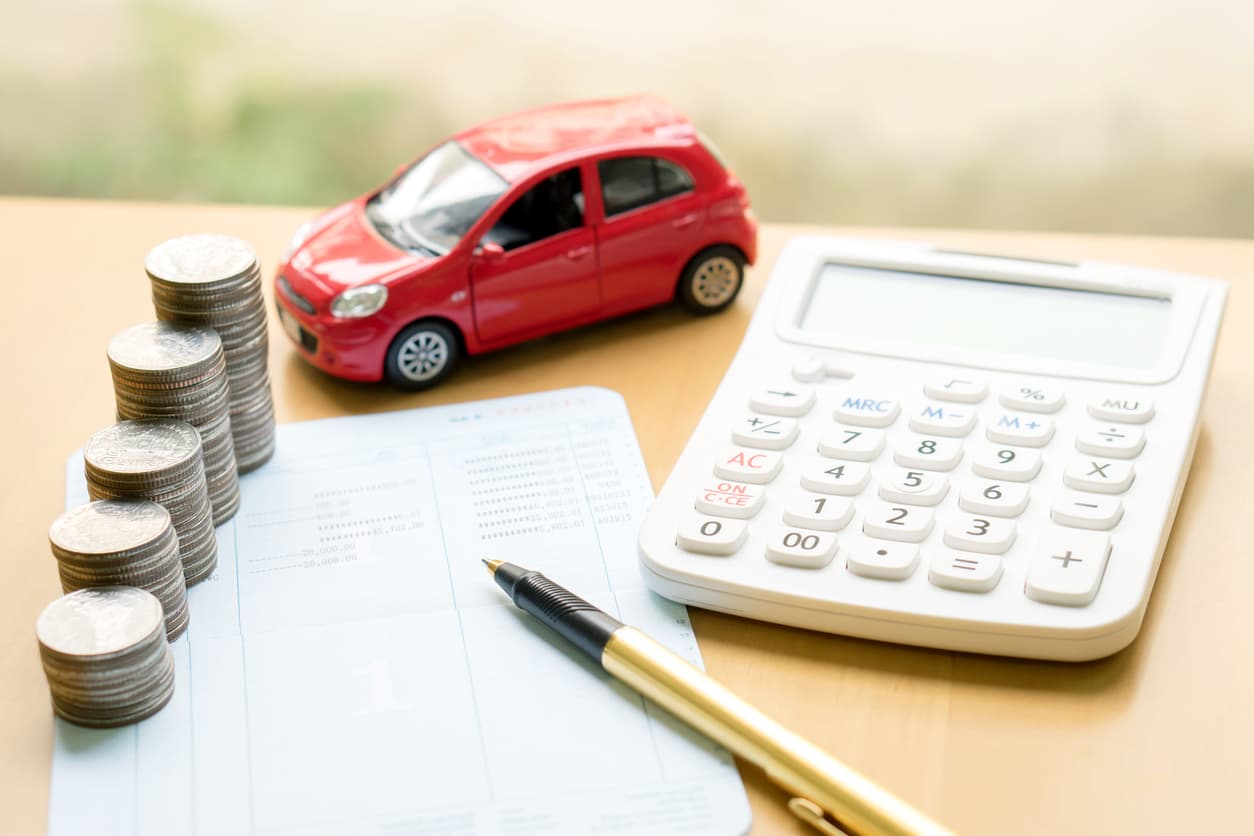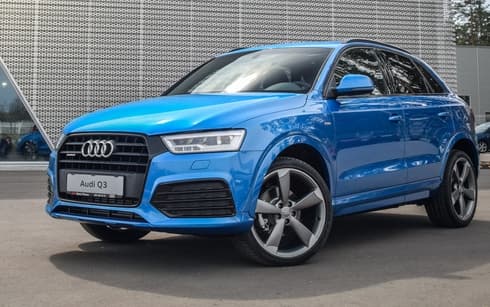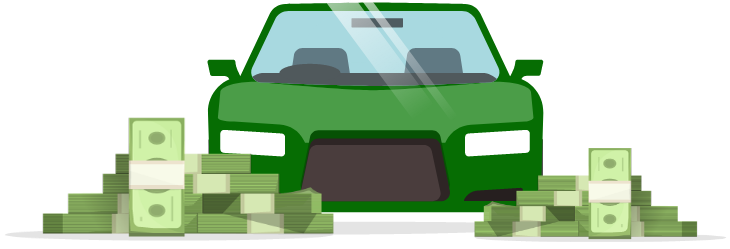How to Buy a Car - Tips and Best Practices
Are you in the market for a new used? Explore the ins and outs of car buying and car leasing, from researching to test driving to financing. When you understand the car buying process, you can avoid the headaches and haggling that often come with purchasing a second hand car. The goal is to help you become an expert on all things car buying, including providing important tips for buying a used car, allowing you to be ready to purchase your dream ride.

Car Buying Options
There are three main options when it comes to buying a car. You can purchase from a car dealership, from a private party, or you can buy your car online. Each method has benefits and drawbacks, so which you choose should be the most convenient for you. Here is an overview of each option with things to keep in mind so you can choose which is best.

Buying from a Dealership
When you visit a car dealership to buy a new or used car, you can expect to be greeted by a salesperson. They will ask you questions about what kind of car you're looking for and what your budget is. Once they have an idea of what you're looking for, they will show you around the lot and point out some options that might interest you.
If you're buying a new car, the salesperson will likely try to get you to add features like extended warranties and gap insurance. They may also try to get you to take out a loan with them instead of going to your own bank. It's important to be firm and know what you want before going into a dealership so that you don't end up paying more than you should.
If you're buying a certified pre-owned car or a used car, the process is similar but the salesperson may be more flexible on price since they're trying to sell an older model. Certified pre-owned vehicles are newer vehicles that have gone through intensive inspections, whereas used cars may not have gone through the inspection process. It's still a good idea to have an idea of what you want and your budget before going in so that you don't end up with a car that needs a lot of repairs.

Buying from a Private Party
If you're thinking of buying a used car from a private party, there are a few things you should keep in mind. First, you'll need to be prepared to haggle. The seller is likely to want to get the best possible price for their car, so be prepared to negotiate. Second, remember that when you buy from a private party, you're essentially on your own when it comes to researching the vehicle. Make sure you know what you're getting into before you hand over any money. Finally, be aware that private party sales are often a final car buying option; there's no going back once the deal is done.
You also have to make sure that you get all the paperwork from the buyer, which can be difficult when going through a private party. You need the vehicle title, a current registration, a bill of sale, and more. These documents are essential, and your responsibility to get during the purchase process.

Buying Cars Online
When you buy a used or new car online, you can expect to find a wide selection of vehicles to choose from, making it a convenient car buying option. You can also expect to find a variety of prices, so it is important to compare different dealerships before making a purchase. Additionally, you will need to be prepared to pay for shipping and handling if you purchase a car from an online dealer.
Leasing a Car
If you're considering leasing a car, you should know a few things. First, it's important to understand how leasing works as a car buying option. Essentially, when you lease a car, you're renting it from the dealership for a set period of time. You'll make monthly payments based on the car's value, and at the end of the lease, you'll have the option to buy the car or return it to the dealership.
There are a few things to keep in mind when negotiating a lease. First, be sure to negotiate the price of the car before anything else. The monthly payment is based on the price of the car, so getting a lower price will lower your payments. Second, be sure to get an estimate of your mileage allowance and whether you'll be charged for going over that allowance. Finally, ask about any fees that may be associated with terminating your lease early.
If you decide to get out of your vehicle lease before it's up, there are a few things you need to do. First, you'll need to find someone to take over your lease. This can be tricky, but some websites can help match you up with someone looking for a short-term lease. Once you find someone, be sure to have all the paperwork transferred over so there's no confusion down the road. Finally, remember to make all your final payments on time so you don't damage your credit score.

Financing a Car
Whether you buy a new car with a car loan or you opt to lease your car, most buyers will need to use financing to purchase the vehicle. You will need to know a lot of information when you explore financing as a car buying option. Here are a few things you need to know about financing a new car or leasing which can help you save both time and money.

Know your credit score and history. This is important because it will affect the interest rate you are offered on your loan. If you have good credit, you will get a lower interest rate, which means you'll save money over the life of the loan.

Shop around for the best interest rate. Don't just go with the first loan offer you get. Talk to multiple lenders and compare rates to make sure you're getting the best deal possible.

Be aware of hidden fees. Some lenders will charge origination or other fees that can add up, so be sure to ask about these before you agree to a loan.

Make a large down payment if you can. The more money you put down upfront, the lower your monthly payments will be and the less interest you'll pay over time.

Have a budget in mind. Don't borrow more than you can afford to pay back each month, or else you'll end up in financial trouble down the road.

Want to get an idea of what your payments would be?
Give the GoodCar Lease Calculator and the GoodCar Loan Calculator a try!
Give it a Try!
Change of Ownership

When you buy a car, you usually have the option to trade in your old car as part of the deal. This can be a great way to get some money off your new car, but it's important to know how it works.
If you're trading in your old car, the dealer will appraise it and give you an offer. The offer will be based on the market value of your car, minus any money owed on it. So, if your car is worth $10,000 and you owe $5,000 on it, the dealer will give you $5,000 for it.
If you're upside down on your loan (meaning you owe more than the car is worth), the dealer may still take your car as a trade-in, but sometimes, they won't give you any money for it. In this case, you'll need to bring cash to the table to make up the difference.
If you're selling your car yourself, you'll need to do some research to find out what it's worth. Kelly Blue Book is a good resource for this. Once you know what your car is worth, you can set a price and start marketing it online or through classified ads.
If your car is being repossessed, there's not much you can do about it. The lender has the right to take back the vehicle if you stop making payments on it. They will usually sell the vehicle at auction to recoup their losses.

Car Values
You can determine the value of a car in several ways, but the most common are fair market value, residual value, and cash value. The values will also differ between new and used vehicles.

Fair Market Value
Fair market value is the price that a willing buyer and seller would agree upon. It considers things like the car's make and model, its age and condition, and any special features it may have.

Residual Value
Residual value is the estimated worth of a car at the end of its lease term or loan period. It's calculated by taking into account things like depreciation, expected mileage, and wear and tear.

Cash Value
Cash value is the amount of money you would get if you sold your car today. It's usually less than the fair market value because it doesn't take into account things like a car's future resale potential.
To find a car's fair market value or residual value, you can use online tools like Kelley Blue Book or Edmunds. To find the cash value of your car, you'll need to contact a local dealership or private party buyer.

You need help finding your car’s residual value?
For help finding your car's residual value, use the GoodCar Vehicle Residual Value Tool
Give it a Try!
Car Pricing Factors

There are many factors that determine the price of the new or used vehicle you want. Each factor will either increase or decrease the base price the car seller will want for the vehicle. Here is a brief overview of some of the most important factors that determine the car’s price:

Age of Car
When considering the age of a car, it is important to consider how long you want the car to last. If you want a long-term investment, a new or gently used car may be the way to go. However, if you are looking for a short-term investment, consider purchasing an older model that has been well-maintained.

Purchase Location
There are many places to go car shopping days, from dealerships to private sellers. One factor to consider is whether you want to buy from a local seller or expand your search nationally or even internationally. Another factor to consider is whether you want to buy from a dealership or an independent seller. Each option has its own pros and cons that should be considered before making a decision.

Financing
There are many options when it comes to financing your car purchase. You can get a loan from a bank or credit union, finance through the dealership, or even lease the vehicle. Each financing method comes with different interest rates, terms, and fees, which can influence the total amount you end up paying for the car. Your best option will depend on your financial situation, but it's important to consider how each financing choice affects the final price of your purchase.

Down Payment
The amount you have for a down payment affects your monthly payments and the total cost of the car. A bigger down payment will lower your monthly payments, but it will also increase the total cost of the car depending on financing terms.

Credit
Your credit score will affect your ability to finance a car and the interest rate you are offered. You will likely qualify for a lower interest rate if you have a good credit score. In contrast, a lower credit score may result in higher interest rates, increasing the overall cost of the car. It will also determine the car loan amount you qualify for based on your income and down payment.

What to Look for
When shopping for a car, it is important to keep your budget, needs, and wants in mind. It is also important to inspect the vehicle thoroughly before making a purchase. Be sure to test drive the car and have a mechanic inspect it to ensure there are no hidden problems that could increase the total cost of ownership.
Finding the Best Car for You
When you're in the market for a used car, it's important to do your research and find the best vehicle for your needs. You can learn about cars by reading reviews, researching vehicle history, and running a vehicle history report using the VIN or license plate number.
Get a Full Vehicle History Report
Reading reviews is a great way to get information about cars from people with first-hand experience. You can read reviews online or in magazines or ask friends and family for their opinions. Once you've narrowed down your options, it's important to research the vehicle history to make sure you're getting a reliable car.
You can obtain a vehicle history report from a number of different sources, including the National Highway Traffic Safety Administration (NHTSA) and the National Insurance Crime Bureau (NICB). These reports will tell you if the car has been in any accidents, whether it has been recalled, and if there are any outstanding safety issues. For help looking up safety recalls, trust the GoodCar Vehicle Recall Lookup Tool
If you're looking for a second hand car, take the time to do your research and find the best option for you. You want to look up information like MSRP, whether the vehicle has a limited warranty or extended warranty, whether car prices differ between car dealerships, and more. Read reviews, check vehicle history reports, and test drive cars to find the perfect one for your needs once your research phase is complete.
GoodCar Makes the Car Buying Process Easier
What's the best way to buy a car? It depends on your needs and budget. If you're looking for the cheapest possible option, you might want to consider buying a used car. But if you're looking for the most convenient or stylish option, you want to buy a new car. Ultimately, GoodCar is here to help make the car-buying process easier.
























